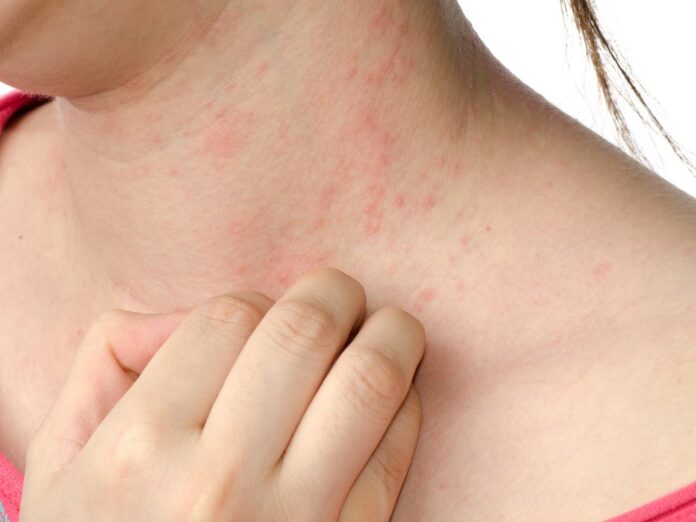Eczema is a common dry skin complaint. The skin is dry, scaly red and itchy. Sometimes the itching will start before the rash appears, but when it does, the rash most commonly appears on the face, back of the knees, wrists, hands, or feet. It may also affect other areas as well.
 Professor David Gawkrodger is a consultant specializing in dermatology and is the spokesperson for the British Skin Foundation. He says “Generally dry skin conditions like Eczema get worse in the cold and the rain; you get a lot of chapping in the wet and wind. Use moisturizers frequently to protect your skin from the elements. Try not to let your clothes rub on your skin as it is abrasive and may make your Eczema worse.”
Professor David Gawkrodger is a consultant specializing in dermatology and is the spokesperson for the British Skin Foundation. He says “Generally dry skin conditions like Eczema get worse in the cold and the rain; you get a lot of chapping in the wet and wind. Use moisturizers frequently to protect your skin from the elements. Try not to let your clothes rub on your skin as it is abrasive and may make your Eczema worse.”
Eczema can be treated with oral medications, steroid creams, and light therapy. Here you can find everyday tips to control symptoms of Eczema:
1. Bathing with Eczema
Having Eczema, how you wash your skin is important. Take a short, warm (not hot) bath or shower every day. Use a gentle cleanser instead of soap and avoid scrubbing your skin. Pat your skin slightly dry. Apply moisturizer within 3 minutes to seal in moisture. An oatmeal bath can also be helpful.
2. Moisturizing
The best way to soothe the dry, itchy skin of Eczema is to moisturize. Creams and ointments (without fragrance) are more effective than lotions. And petroleum jelly works well after a bath. Moisturize two to three times a day, and every time you wash your hands.
3. Don’t Scratch the Itch
Try not to scratch or rub the Eczema skin when it itches. It only increases the itch and inflammation. Instead of scratching, apply a cold moisturizer or a cool gel to soothe the skin.
4. Eczema and Clothing Tips
With Eczema, wear loose-fitting clothes made out of soft, open-weave, comfortable fabrics, i.e. cotton. Avoid irritating fabrics like wool or coarsely woven materials.
5. Avoid Allergens
Being exposed to allergens can also cause Eczema or make its symptoms worse. Excessive use of some foods can activate Eczema like eggs, dairy products, wheat, and acidic foods like tomatoes. Dust, mold, pet dander, and pollen also can make Eczema flare-up. Try to avoid or reduce exposure to allergens.
6. Use Sunscreen
Always wear sunscreen with an SPF of 30 or higher to avoid getting a sunburn. Sunburn can make your skin even itchier than normal. Try using sunscreens made for the face on your entire body. They are usually less irritating than regular sunscreens. Products containing zinc oxide or titanium oxide do not bother your skin.




















